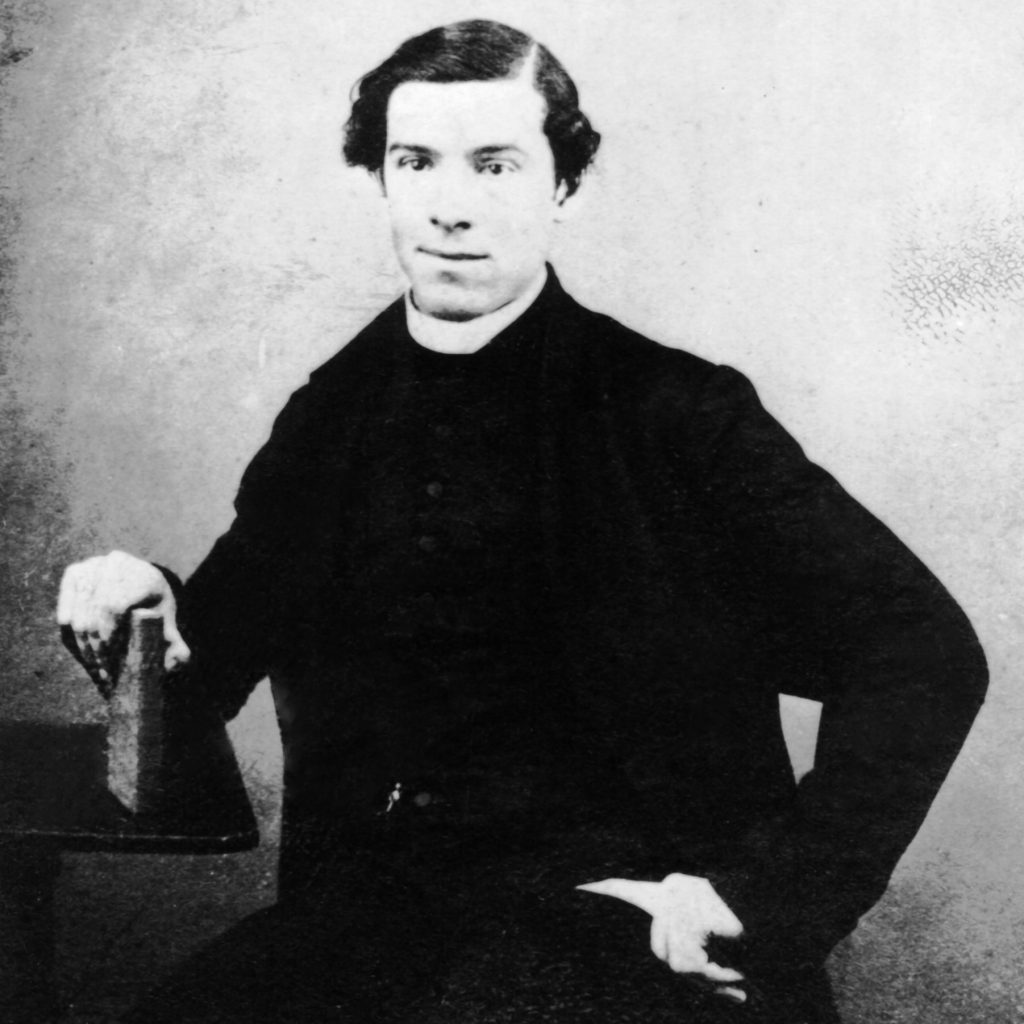
Twenty-four-year-old Julian Woods [1] was ordained a priest by Bishop Francis Murphy in Adelaide’s St Patrick’s Church on 4 January 1857. From his mid-teens, Julian’s one goal and longing had been ordination.
Raised in London by his Irish parents with the general conviction of Christian faith, he had no clear denominational identity. His mother was Anglican, his father Catholic, though non- practising. He was regularly sent with his brothers to the Anglican services, but recognised the reverence with which his father spoke of his earlier reception of the sacraments.
Both parents ingrained in Julian the Christian predilection for those in need. He said both impressed on him that ‘to assist all in distress was a thing which God and man demanded as a positive duty’. His mother especially gave practical assistance to those in need and his father was always repeating that ‘he that mocketh the poor reproacheth his Maker’. [2]
At the age of fifteen, moving from vague Christian principles towards a convinced Catholicism, and owning his love of Mary (part of Catholic identity), Julian sought instruction from a local priest in the Catholic church of his baptism and received his first Holy Communion on Christmas Day when he was sixteen.
Another local priest, Canon Frederick Oakeley, a former Anglican priest, a family connection, renowned scholar and significant in the Oxford movement, took great interest in him. He encouraged young Julian in his desire for frequent Holy Communion and his desire for priesthood, desires that grew from his first reception of Holy Communion.
Obstacles abounded: family financial stress, his father’s opposition and his own fragile health. As well as Oakeley, three priests now recognised or on the way to recognition as saints, believed in his call to priesthood and encouraged him, while he struggled with health as well as deep anxiety of how to reach ordination with his poor health.
Julian’s journey to ordination followed a winding way: two years as a Passionist, leaving the Passionists because of ill health, one year in France as a Marist, again struggling with illness, an invitation to Tasmania from Bishop Robert Willson, disillusionment about the Tasmanian task, a journey to his brothers in Melbourne and Adelaide, further illness, and a time of no progress till mid-1856 when Bishop Francis Murphy invited him to ordination. Bishop Murphy arranged further study for ordination among the Jesuits at Sevenhill, north of Adelaide.
Looking back near the end of his life, Julian spoke of heading to Sevenhill ‘with the greatest alacrity and delight… for the desire of being a priest was the one wish of his heart beyond every other thing in this world’. [3] He was ordained deacon in Adelaide on 18 December, then priest, on 4 January. Two of his brothers and a sister-in-law were among those attending.
Twenty-seven years later at Thaiping, Malaysia on 4 January 1884, Julian wrote in his diary:
This day twenty-seven years ago I was ordained a Priest. How vividly all comes back to me, how happy I was on that day and have been ever since in the privilege I that day obtained! I have had new reasons for rejoicing in it ever since. How I have always delighted in that nothing could ever deprive me of that privilege! I felt on that day that the Church was my bride, and it has been a honeymoon unceasing with me ever since. I have had troubles and crosses – some of them heavy enough – but my priesthood was my comfort. [4]
Julian’s identity was sealed, rejoiced in and irrevocably owned on 4 January 1857.
Julian’s journey to ordination is explored further in the article Julian Tenison Woods – Encouraged by Saints here and in the Journal of the Australian Catholic Historical Society (Vol. 45, 2024) in the article titled ‘Saints in the Making of Julian Tenison Woods’ (pp. 40-50) here.
Jan Tranter rsj
Sisters of St Joseph Lochinvar
Footnotes:
[1] Julian began to use Tenison (his mother’s surname), as well as Woods, when he was the Penola Parish priest, as another Rev J. Woods was also writing scientific articles
[2] Julian Tenison Woods, Memoirs (dictated), 1888, typescript copy, Lochinvar archives, 6-7.
[3] Memoirs, 11, 7
[4] Sr Columcille (Sr John M Dowling), Memoirs of our Founder, (Manuscript 1891, Hillston), published, The Tablet, NZ, 1953, 36.
